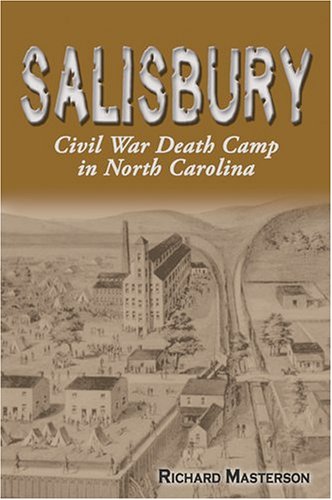Salisbury: Civil War Death Camp in North Carolina
Though packaged and titled (oddly) like a non-fiction book, Salisbury is a novel based on the Civil War experiences of the author’s great-grandfather-in-law. As a young man, James Reed enlists, against his father’s will, with the 21st New York Volunteers. He sees action at Bull Run and Fredericksburg before completing his tour of duty. Restless and adrift at home, he re-enlists in 1864. During the siege of Petersburg, he is captured by the Confederates and sent to Libby Prison, later to be transferred to Salisbury. There, he is reunited with comrades from his company, and makes alliances with a group of free black soldiers. Together they struggle to survive the meager rations, bad water, lack of sanitation, and the sickness that inevitably follow. Though the first half of the book is marred by the author’s passionate but awkward prose, once in Salisbury, Masterson is at his best. The phrasing untangles, allowing the characters a chance to come alive, and the plot to unfurl. Clearly a master of Civil War history, Masterson has penned a flawed but harrowing story about the inhumanity of war.










